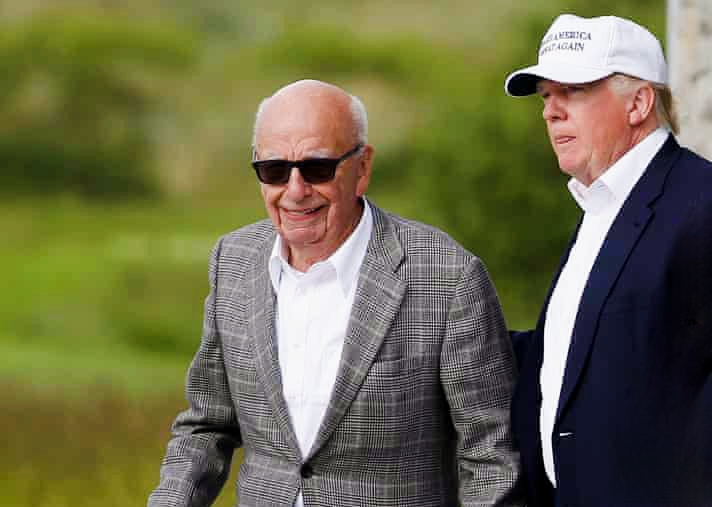In a new escalation of the conflict between US President Donald Trump and the Wall Street Journal, Trump questioned the extent of media mogul Robert Murdoch's control over the newspaper, a day after demanding Murdoch to testify in the case filed against him and the newspaper.
Speaking from aboard his presidential plane on his way back from Scotland to Washington, Trump said: "I thought that Robert Murdoch controlled the newspaper. Maybe he does, maybe he doesn't. They talk to us about the possibility of doing something, but we'll see what happens," as reported by the American newspaper Daily Beast.
Earlier this month, Trump filed a lawsuit against Murdoch and the Wall Street Journal after the newspaper published a report about an alleged letter sent in 2003 to businessman Jeffrey Epstein on his 50th birthday, containing sexual innuendos.
Trump completely denied the authenticity of the letter, considering it "fake", and asserting that the newspaper tarnished his reputation.
Trump's legal team requested the court on Monday to compel Murdoch to testify within two weeks, citing direct appeals from Trump to Murdoch regarding the article.
In his statements on Tuesday, Trump indicated that the newspaper is seeking to settle the case, saying: "They want to settle it."
On the other hand, Dow Jones Company, the owner of the Wall Street Journal, stated that it is "fully confident in the accuracy" of its report, and affirmed that it will "vigorously defend it in court."
If a settlement is reached, the newspaper will join a list of media institutions that have previously reached legal settlements with Trump, including Paramount Company, which paid $16 million in a case related to an episode of "60 Minutes," and Disney Company, which paid the same amount to settle a lawsuit related to an interview broadcast by ABC News last year.
Although Murdoch's media empire, including Fox News and New York Post, is known for its supportive stance towards Trump, the Wall Street Journal has maintained a more independent editorial line, especially in the opinion section that openly criticized the president's policies.
Trump had previously complained to Murdoch personally about this direction during Murdoch's visit to the White House in February last year.
It is noteworthy that Murdoch had previously granted the Wall Street Journal full editorial freedom even in matters that personally affected him, allowing the newspaper to publish an extensive investigation last year about his dispute with his sons over the modification of his family investment fund, a battle that he lost.

